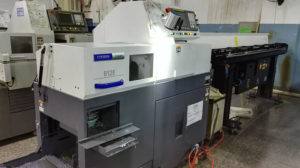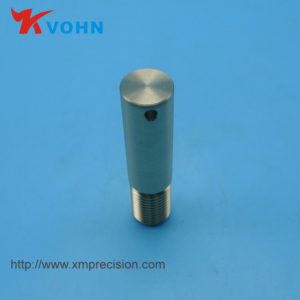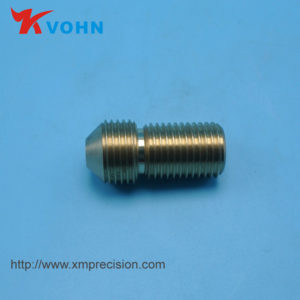Respect for “excellence” and innovation. CNC Machining in China
“Craftsmanship” is a distant and unfamiliar word for many people, but it appeared on the Prime Minister’s government work report on March 5. It is so grand that it shows the extreme demand of the Chinese society. Although the arts and crafts activities began to decline after the arrival of the industrial era more than 200 years ago, the “artisan spirit” is still preserved and developed in today’s world, and has made many national brands famous.
The well-known Swiss watch is known to the world for its meticulous attention to the world of watchmakers. Germany and Japan’s re-emergence after the Second World War is not unrelated to advocating the “artisan spirit”. The concept of “efficiency” in modern society does indeed conflict with the emphasis on traditional craftsmanship, but the two are not completely contradictory. CNC Machining in China
The “Key” of German Enterprises’ Achievement in a Century
Dingfen is a small town 100 km east of Munich and is home to BMW’s largest automobile factory. There are 18,500 employees and produce 1500 BMW cars a day. The assembly shop has a very fine division of labor. There are dozens of employees on the assembly line, and each station consists of two or four people. From the chassis, the engine, the tires, to the downline to a finished product that can be sold, it takes only two minutes. The installation requirements are very strict. If one screw is not screwed on or not fully tightened, the entire mounting line must be stopped.
Siemens, Mercedes-Benz, Bosch… In Germany, there are many hundred-year industrial families. The successes of these “hundred-year-old stores” share common characteristics, just as the scene of the BMW workshop described above–concentrated on every product and process. The pursuit of excellence is reflected in the “artisan spirit” in the era of modern production. This spirit makes the “Made in Germany” famous, let Germany’s century-old industrial brands get together, let Germany outshone the European economy in a difficult time. CNC Machining in China
One of the characteristics of the German “artisan spirit” is “slow.” The Cologne Cathedral was built in 1248 and was not completed until 1880 by Emperor William I. It took more than 600 years. German craftsmen’s “slow work” created the perfect gothic church. For Germans, “the speed is not up to speed” – steady first, speed second.
“Special” is the second feature. There are approximately 3.7 million businesses in Germany, 95% of which are family businesses. Many of these family-owned enterprises are the “invisible champions” of a certain industrial field in the world. Their common feature is that they all love to “dig in their hands”. Like “The Screw King” Würth, only a few employees were founded in 1954 and are now expanding to more than 50,000 employees. Its success lies in its insistence on “single” products – screws. CNC Machining in China
The third feature is “innovation.” A new type of car can carry a lot of information and communication technology innovations. Even some small businesses have R&D departments.
Since the Middle Ages, “craftsmen” have become the professional norm of the Germans. At that time, the master began to bring a few apprentices to do craftsmanship. German-style “artisan spirit” is inseparable from the German dual system of vocational training system (the so-called “double” means that vocational training must go through two places of training, one dollar refers to vocational schools, the other is a business or public institutions, etc. Off-campus training venue). This system can be traced back to the end of the 18th century, but it was not formed until the end of the 19th century.
“Politeness”, the trajectory of Japan
“Artisan spirit” is not a German patent. For the Chinese people, more people are familiar with the Japanese “ingenuity.” From the insulated cup to the toilet lid, from the cold medicine to the reception service, Chinese tourists flock to Japan behind and have the shadow of Japan’s “artisan spirit”. CNC Machining in China
“Artisan spirit” is also called “job temperament” in Japan. Professionals are craftsmen and craftsmen. In the Edo period, Japan divided the people into “Science and Business,” and the employees belonged to “Work.” At that time, it was mainly craftsmen such as pottery, forging and carpenters who went to Japan from China and North Korea.
In modern times, Japan imported a lot of European industrial technology after the Meiji Restoration. There were many private factories in the country like the “Street Factory”. The Japanese government classified it as a small and medium-sized enterprise. The owners of these small and medium-sized enterprises are often called “employees.” These bosses often allow their children to “pass the father’s business” and pass on the technology. CNC Machining in China
In the modern era, most of the employees are those who have excellent metal processing technology. For example, some small factories in Japan can cut the thickness of copper foil to only one tenth of human hair. Such thin copper wire is an indispensable raw material for smartphones and space instruments.
Japan is a country with a “craftsman” cultural tradition. It is precisely because of this, and the tradition of inheriting his father’s father’s career has enabled many companies in Japan, regardless of their size and size, to continue to develop long-term. According to statistics, there are more than 3,100 companies in Japan that have a life expectancy of more than 200 years, ranking first in the world. And these “hundred years old” business model is not anxious to “do bigger and complete”, are not busy with capital accumulation, listing money, but focus on a commodity or a technology. Of course, the Japanese also pay great attention to establishing long-term “feelings” with consumers in their operations.
Many Japanese old brands have developed in this way. Japan’s Gifu Prefecture is the birthplace of Japanese knives. After China’s forging technology was introduced to Japan, many “small workshops” in Gifu Prefecture kept the ancient forging technique and made various knives. Now they are forging knives. Nikon cameras in Japan are very expensive, because Nikon has been working on polishing glass lenses since World War I. CNC Machining in China
Efficiency, conflict with “craftsmanship”
Swiss watches are well-known. Swiss craftsmen originally made big clocks for churches. They later developed into small clocks and watches. This is a historical accident, but Swiss craftsmen make fine clocks. This is the same strain; With scarce resources, it can’t be extravagant, so everything is refined; Germany and Italy’s professional spirit is “artisan spirit”. They all take pride in being artisans.
However, “craftsmen” have not always been at the forefront of the historical stage. Due to the impact of industrialization and globalization, many sophisticated manual technologies are on the verge of extinction. Not only China, but also abroad. Many traditional artisan craftsmen in Japan are gradually reducing and disappearing.
In the fashion world where there are many positive forces to promote, there are also challenges – the number of artisans is reduced, and this generation of craftsmen is getting older, while young people are no longer willing to do manual work. CNC Machining in China
To a certain extent, modern society that promotes efficiency is inevitably in conflict with the “artisan spirit”. In the middle of the 18th century, when Watt’s improved steam engine opened the curtain of the industrial age, more efficient and more accurate machines gradually replaced the manual work of human beings, leading to a decline in the tradesmanship industry. Even the word “craftsman” is gradually retreating to history and replaced by “workers”.
Even Japan, which admires the “artisan spirit”, has disagreed on its judgment. Because Japan has entered the industrial society, only mass production and efficient large companies will be able to survive better, and SMEs have collapsed in the midst of market competition. Moreover, the “artisan spirit” is to focus entirely on technology and completely ignore other aspects. When the economy is not good, this is often unrealistic. Some people even think that it is too detailed to ignore the principle that “simple is the most beautiful”.
However, the “craftsmanship spirit” is of great importance to industrial powers. In the fields of mechanical watchmaking and precision machining in Japan, a large number of craftsmen are well protected and respected. Due to the sluggish economic environment, many Japanese SMEs went bankrupt. For this reason, Japanese professionals shouted to require protection of SMEs and protect Japan’s “core technology development forces”. CNC Machining in China
Blind pursuit of maximum efficiency, not good
The Obama administration is openly worried about the manufacturing industry, hoping to revitalize the manufacturing industry in order to stimulate innovation and reduce the trade deficit, but they almost never go further and openly declare that a growing manufacturing industry is inspiring the spirit of craftsmanship. It is a self-image of the United States – a critical component that is bold, enterprising, innovative, and capable of producing any product.
Some American scholars believe that young Americans grow up in a family environment where they cannot develop manual skills. The high salary in the financial and other fields is one of the reasons for the gradual decline of the “artisan spirit” in the United States. CNC Machining in China
Compared with the anxiety of the Americans, China’s demand for “artisan spirit” is even more urgent. The “Made in China” impression of people with low quality and low prices is due to the lack of “artisan spirit.” The essence of “craftsmanship” is essentially down-to-earth, excellence, and step-by-step, not good. Chinese companies are generally too impetuous to pursue maximum efficiency. In that year, Haier’s refrigerator was calling for “artisan spirit”.
In Europe, the “artisan spirit” is to pursue excellence and keep this spirit. It is now an era of mechanization, electronics, and information. It is even more necessary to strengthen this spirit and adhere to traditional craftsmanship and traditional culture. CNC Machining in China
CNC Machining Service & CNC Machining parts

Experienced CNC machine services inc China Manufacturer

oem metal

metal parts china
